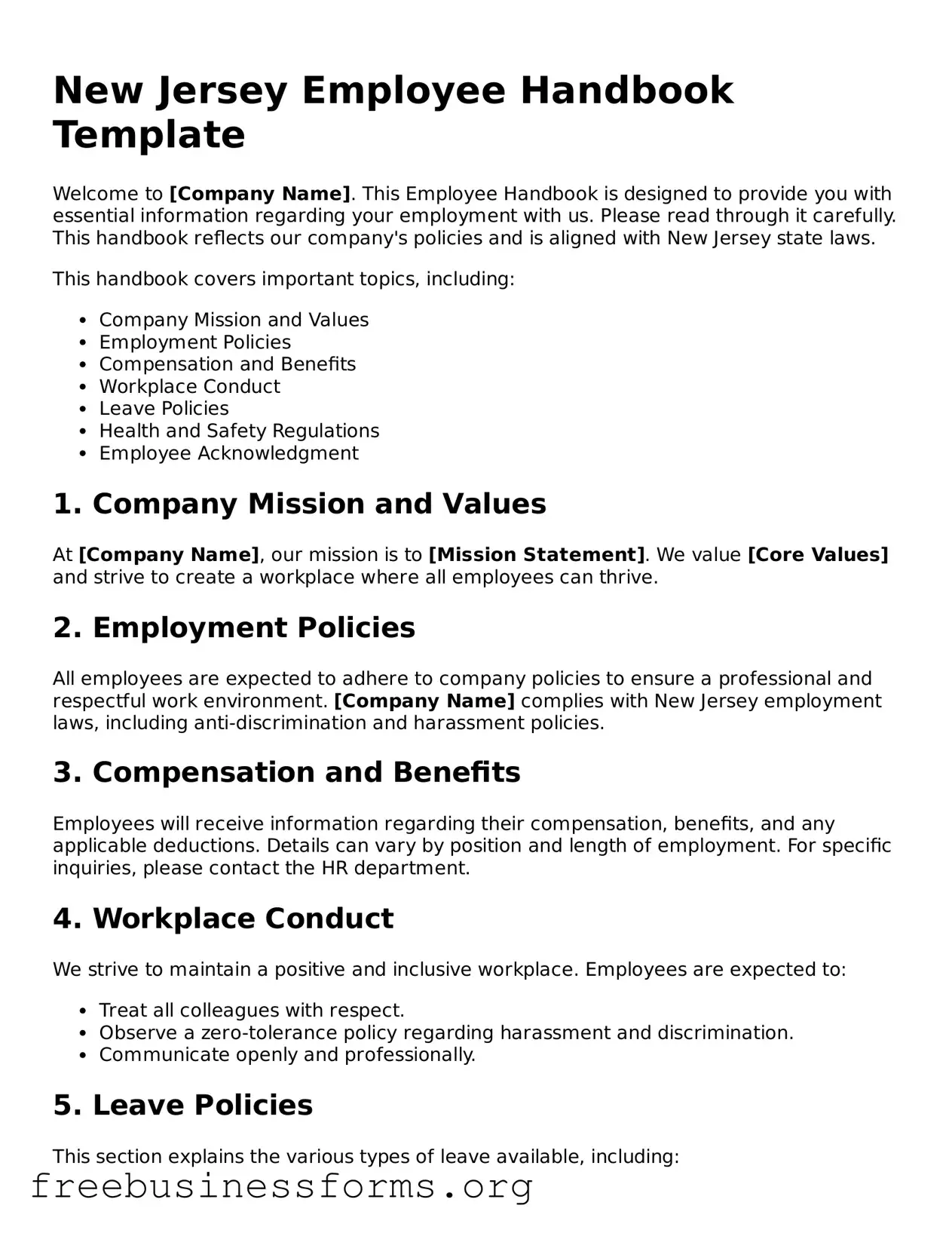Blank Employee Handbook Template for New Jersey
The New Jersey Employee Handbook form serves as a crucial document that outlines the policies, procedures, and expectations for employees within a company. This form not only helps to clarify the rights and responsibilities of both employers and employees but also ensures compliance with state regulations. By providing clear guidelines, the handbook fosters a positive workplace environment and promotes understanding among all staff members.
Open Form Here

Blank Employee Handbook Template for New Jersey
Open Form Here

Open Form Here
or
↓ PDF File
Quickly complete this form online
Complete your Employee Handbook online quickly — edit, save, download.